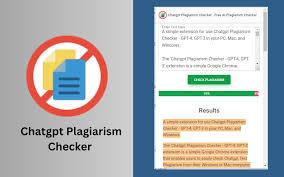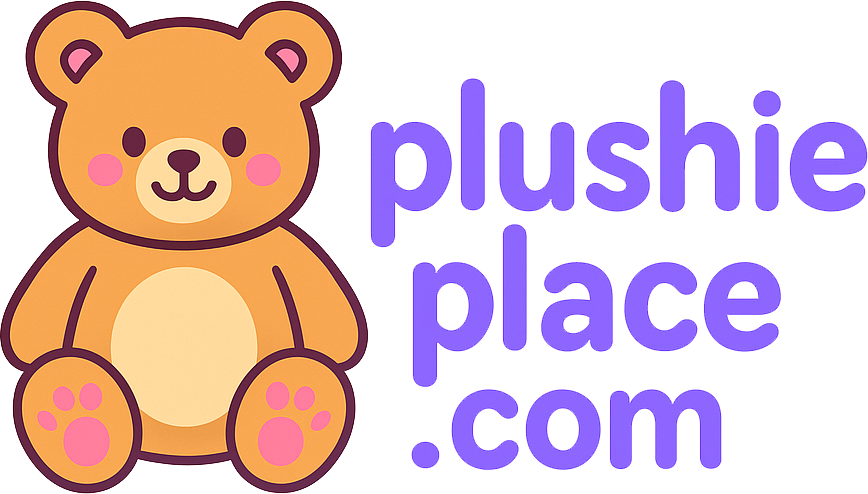-
أخر الأخبار
- استكشف
-
الصفحات
-
المجموعات
-
المناسبات
-
المدونات
Plagiarism Checker: A Crucial Tool in the Digital Era

Introduction
With so much information at our hands in this day and age, content creation has skyrocketed. Writers, students, bloggers, marketers, and researchers are constantly producing digital content, essays, reports, and academic papers. With this rapid generation of content comes an increased risk of unintentional or deliberate plagiarism. That’s where a plagiarism checker becomes an indispensable tool. This article explores what a plagiarism checker is, why it's important, how it works, and its key benefits across different fields.
What is a Plagiarism Checker?
A plagiarism checker is an advanced software tool that scans written content to detect similarities with other published sources on the internet or within its internal databases. It indicates whether passages of text have been paraphrased without the appropriate reference or copied verbatim. Depending on the tool, it may compare documents against web pages, academic journals, books, and even other student submissions.Plagiarism checkers are commonly used in academic institutions, digital publishing, journalism, marketing, and legal industries to ensure the originality of content.
Why Is Plagiarism a Problem?
Plagiarism is considered a serious ethical violation. In academia, it can lead to failed grades, revoked degrees, or academic probation. In professional settings, it may damage a company’s reputation, result in lawsuits, or cause financial loss.Even inadvertent plagiarism, such not properly citing a source, might have serious repercussions.With the volume of online content growing exponentially, it is more challenging than ever to ensure that one's work is truly unique. For this reason, utilizing a trustworthy plagiarism detector is now required rather than optional.
How Does a Plagiarism Checker Work?
Most plagiarism checkers follow a multi-step process to identify duplication:
-
Text Segmentation: The program divides the text into manageable chunks, such phrases or sentences.
-
Comparison Algorithms: Each segment is compared with billions of web pages, documents, and other online resources.
-
Similarity Indexing: When matches are found, the software calculates a similarity score indicating how much of the content is duplicated.
-
Citation Checks: Some advanced tools also verify if the matched content has been cited properly.
-
Report Generation: A detailed report highlights matched sections, source links, and percentage of similarity.
See more article: plagiatsprüfer
The efficiency and accuracy of a plagiarism checker largely depend on the strength of its database and the sophistication of its comparison algorithms.
Types of Plagiarism Checkers
There are several types of plagiarism checkers available today, ranging from free tools to premium platforms:
-
Free Plagiarism Checkers: Tools like Small SEO Tools or DupliChecker offer basic detection capabilities suitable for short articles or blog posts.
-
Academic Plagiarism Checkers: Tools like Turnitin and Grammarly are widely used in schools and universities for checking research papers and theses.
-
SEO-Focused Plagiarism Checkers: Platforms like Copyscape and Plagscan help digital marketers ensure unique content for websites to improve search engine rankings.
Every tool is made to satisfy the requirements of particular user groups, such as professionals, content producers, or students.
Benefits of Using a Plagiarism Checker
Using a plagiarism checker provides numerous advantages that go beyond just avoiding copyright issues.
1. Ensures Originality
Original content is valuable. Whether you're submitting a college essay or publishing a blog post, a plagiarism checker helps verify that your work is authentic and free of copied content.
2. Saves Time and Effort
Instead of manually comparing your content against multiple sources, a plagiarism checker automates the process, giving you quick results.This saves a great deal of time, particularly when working with long documents.
3. Improves Credibility
Professionals and writers that use plagiarism checkers regularly create reliable and excellent material. This boosts their reputation and builds trust with their audience.
4. Helps in Learning Proper Citation
For students and academic researchers, plagiarism checkers serve as learning tools. They highlight instances where citations are missing or incorrect, encouraging users to learn proper referencing techniques.
5. Protects Intellectual Property
For authors, poets, and researchers, plagiarism checkers help protect original content from being duplicated without permission. Some platforms even offer plagiarism alerts for newly published content.
Who Should Use a Plagiarism Checker?
Plagiarism checkers are valuable to a wide range of individuals and industries:
-
Students and Educators: To ensure academic honesty and maintain institutional integrity.
-
Writers and Journalists: To avoid reputation damage and legal consequences.
-
Bloggers and SEO Specialists: To create search engine-friendly, unique content.
-
Businesses and Legal Professionals: To protect proprietary content like business proposals and legal documents.
-
Freelancers and Content Agencies: To deliver plagiarism-free work to clients.
Common Misconceptions About Plagiarism Checkers
Despite their benefits, plagiarism checkers are sometimes misunderstood. Here are a few myths debunked:
-
“They’re only for students.”
Not true. Professionals, researchers, and businesses use them regularly to ensure originality. -
“Free tools are enough.”
While free tools are useful for basic checks, premium tools offer in-depth scanning, citation checks, and access to academic journals. -
“They eliminate the need to cite sources.”
Absolutely false. A plagiarism checker helps detect duplication but does not replace the ethical responsibility to credit sources properly.
Choosing the Right Plagiarism Checker
Take into account the following elements while choosing a plagiarism detector:
-
Database Size: The better the detection, the larger the database.
-
Accuracy: Look for tools that detect paraphrase plagiarism and not just exact matches.
-
Speed: Choose a tool that provides quick yet thorough results.
-
User Interface: An intuitive dashboard helps users interpret results easily.
-
Cost: Depending on your needs, weigh the benefits of a free vs. premium version.
Popular tools include Grammarly, Turnitin, Quetext, and Copyscape, each catering to different user bases.
Conclusion
Making sure the content is unique is more crucial than ever in the digital age of today, where it is king. A plagiarism checker is not just a safeguard against academic or professional misconduct—it’s a tool that encourages integrity, boosts creativity, and strengthens your credibility. Whether you're a student, educator, writer, or marketer, integrating plagiarism-checking software into your workflow is a wise and responsible move.So the next time you finish writing an article, research paper, or any piece of content, run it through a plagiarism checker. It’s a small step that makes a big difference.
For more and latest article: Clicking Here
- Art
- Causes
- Crafts
- Dance
- Drinks
- Film
- Fitness
- Food
- الألعاب
- Gardening
- Health
- الرئيسية
- Literature
- Music
- Networking
- أخرى
- Party
- Religion
- Shopping
- Sports
- Theater
- Wellness


